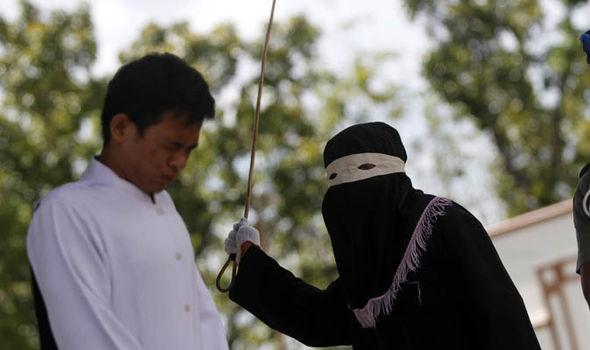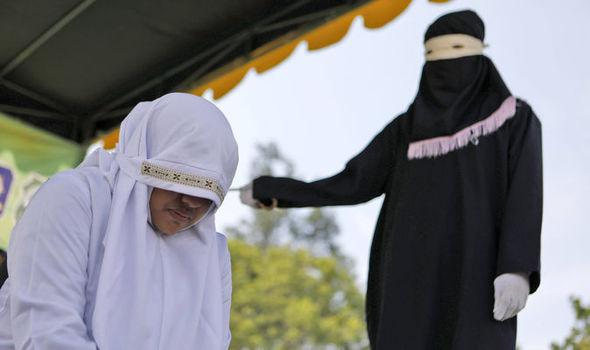In the heart of America’s ongoing cultural and legal battles, a provocative question has ignited fierce debate: Will Sharia law be completely banned across all 50 U.S. states? This notion, often sensationalized in viral social media posts and political rhetoric, taps into deep-seated fears about religious influence, national identity, and constitutional rights. As of 2025, no such nationwide ban exists, nor is one imminent, but the controversy reveals a nation grappling with Islamophobia, legal precedents, and the boundaries of religious freedom.
 Sharia, derived from the Arabic word meaning “path to water,” refers to Islamic principles guiding personal conduct, ethics, family matters, and finance for Muslims. It’s not a monolithic code but a flexible framework interpreted variably, much like Jewish Halakha or Christian canon law. For American Muslims, Sharia typically influences private life—such as dietary rules, prayer rituals, or interest-free banking—without conflicting with U.S. law. Yet, critics portray it as a threat, evoking images of extremism seen in places like Taliban-ruled Afghanistan, where harsh interpretations include amputations or gender oppression. Proponents of bans argue that safeguarding American courts from foreign or religious laws is essential to preserve constitutional supremacy. Since 2010, anti-Sharia legislation has surged, often under the guise of “American Laws for American Courts” bills drafted by groups like the Center for Security Policy. These measures prohibit judges from considering international or religious laws that violate U.S. rights. As of now, about a dozen states have enacted such laws, including Alabama, Arizona, Arkansas, Kansas, Louisiana, Mississippi, North Carolina, Oklahoma, South Dakota, and Tennessee. For instance, Alabama’s 2014 constitutional amendment banned Sharia explicitly, passing with 72% voter approval amid fears of “creeping” foreign influence. In 2025, rumors swirled about Texas becoming the first to outright ban Sharia, but fact-checks debunked this as false, tracing it to misleading Instagram posts and outdated bills from 2017. Supporters, including figures like David Yerushalmi, who authored model legislation, insist these bans are religiously neutral and prevent potential abuses, such as honoring foreign rulings that discriminate against women or minorities. They point to rare court cases, like a 2010 New Jersey incident where a judge initially considered Sharia in a domestic abuse claim before it was overturned on appeal. Organizations like ACT for America have mobilized grassroots efforts, framing Sharia as incompatible with Western values and linking it to terrorism prevention. In Idaho and Florida, lawmakers have pushed similar bills, arguing they counter “homegrown threats” without targeting Muslims directly. On the other side, opponents decry these efforts as discriminatory and unconstitutional, violating the First Amendment’s protections for religious exercise and establishment clauses. The ACLU has challenged bans, successfully blocking Oklahoma’s 2010 measure, which a federal judge ruled could harm Muslims by invalidating wills or contracts incorporating Sharia principles. Critics argue that U.S. law already prioritizes the Constitution—foreign laws are only referenced in consensual arbitration or international contracts, always subject to American standards. Jewish groups, including the Anti-Defamation League, oppose the bans, noting they could undermine Halakha in similar ways, affecting prenuptial agreements or religious tribunals.
Sharia, derived from the Arabic word meaning “path to water,” refers to Islamic principles guiding personal conduct, ethics, family matters, and finance for Muslims. It’s not a monolithic code but a flexible framework interpreted variably, much like Jewish Halakha or Christian canon law. For American Muslims, Sharia typically influences private life—such as dietary rules, prayer rituals, or interest-free banking—without conflicting with U.S. law. Yet, critics portray it as a threat, evoking images of extremism seen in places like Taliban-ruled Afghanistan, where harsh interpretations include amputations or gender oppression. Proponents of bans argue that safeguarding American courts from foreign or religious laws is essential to preserve constitutional supremacy. Since 2010, anti-Sharia legislation has surged, often under the guise of “American Laws for American Courts” bills drafted by groups like the Center for Security Policy. These measures prohibit judges from considering international or religious laws that violate U.S. rights. As of now, about a dozen states have enacted such laws, including Alabama, Arizona, Arkansas, Kansas, Louisiana, Mississippi, North Carolina, Oklahoma, South Dakota, and Tennessee. For instance, Alabama’s 2014 constitutional amendment banned Sharia explicitly, passing with 72% voter approval amid fears of “creeping” foreign influence. In 2025, rumors swirled about Texas becoming the first to outright ban Sharia, but fact-checks debunked this as false, tracing it to misleading Instagram posts and outdated bills from 2017. Supporters, including figures like David Yerushalmi, who authored model legislation, insist these bans are religiously neutral and prevent potential abuses, such as honoring foreign rulings that discriminate against women or minorities. They point to rare court cases, like a 2010 New Jersey incident where a judge initially considered Sharia in a domestic abuse claim before it was overturned on appeal. Organizations like ACT for America have mobilized grassroots efforts, framing Sharia as incompatible with Western values and linking it to terrorism prevention. In Idaho and Florida, lawmakers have pushed similar bills, arguing they counter “homegrown threats” without targeting Muslims directly. On the other side, opponents decry these efforts as discriminatory and unconstitutional, violating the First Amendment’s protections for religious exercise and establishment clauses. The ACLU has challenged bans, successfully blocking Oklahoma’s 2010 measure, which a federal judge ruled could harm Muslims by invalidating wills or contracts incorporating Sharia principles. Critics argue that U.S. law already prioritizes the Constitution—foreign laws are only referenced in consensual arbitration or international contracts, always subject to American standards. Jewish groups, including the Anti-Defamation League, oppose the bans, noting they could undermine Halakha in similar ways, affecting prenuptial agreements or religious tribunals.
 Scholars like Intisar Rabb emphasize that Sharia in America is pietistic and personal, not a bid to overthrow secular courts. Moreover, these laws may have unintended economic consequences, deterring foreign investment by complicating international disputes. A Brennan Center report warned of broader impacts, including on global trade and human rights treaties. Despite the hype, PolitiFact and Snopes have rated claims of widespread bans as false or exaggerated; only 11 states had such measures by 2018, with little expansion since. In 2025, amid Trump’s renewed travel bans targeting Muslim-majority countries, the debate intensifies, blending immigration fears with legal paranoia. Ultimately, this stormy discourse forces a choice: Side with bans to ostensibly protect American sovereignty, risking religious discrimination and legal overreach? Or oppose them, upholding pluralism while trusting existing safeguards against any true threats? As America diversifies, the answer may define its commitment to liberty for all faiths. Where do you stand in this divide?
Scholars like Intisar Rabb emphasize that Sharia in America is pietistic and personal, not a bid to overthrow secular courts. Moreover, these laws may have unintended economic consequences, deterring foreign investment by complicating international disputes. A Brennan Center report warned of broader impacts, including on global trade and human rights treaties. Despite the hype, PolitiFact and Snopes have rated claims of widespread bans as false or exaggerated; only 11 states had such measures by 2018, with little expansion since. In 2025, amid Trump’s renewed travel bans targeting Muslim-majority countries, the debate intensifies, blending immigration fears with legal paranoia. Ultimately, this stormy discourse forces a choice: Side with bans to ostensibly protect American sovereignty, risking religious discrimination and legal overreach? Or oppose them, upholding pluralism while trusting existing safeguards against any true threats? As America diversifies, the answer may define its commitment to liberty for all faiths. Where do you stand in this divide?






